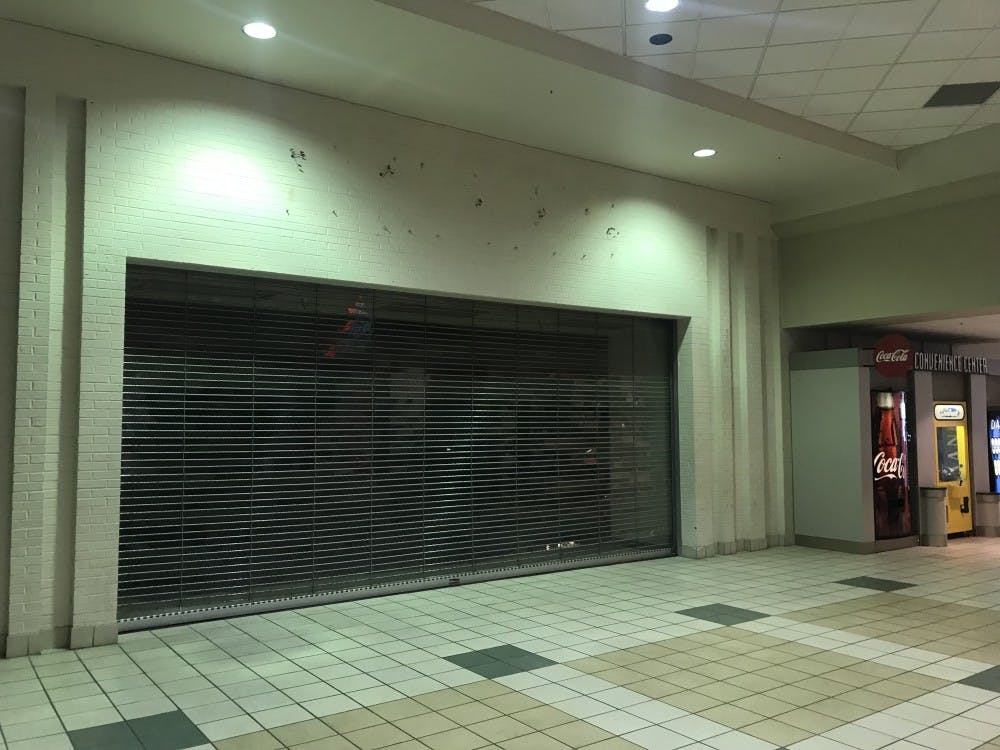Earlier this week, Gov. Mitch Daniels took another step toward securing the safety of the Indianapolis area in preparation for Super Bowl XLVI on Sunday.
On Monday, Daniels signed Senate Enrolled Act 4, a piece of legislation that will create stricter penalties regarding sex-trafficking in Indiana.
The bill, sponsored by Republican Sen. Randy Head, will make it easier to prosecute sex trafficking cases that involve victims younger than the age of 16.
The bill will broaden the law with cases that involve older victims. It will make recruiting, transporting or harboring anyone younger than 16 for prostitution a felony. Violation of the law is punishable by 20 to 50 years in prison and a $10,000 fine.
The former Indiana law made it possible for traffickers to avoid prosecution by claiming that the child was not being held against their will.
The reasoning behind the bill is due to the general increase in prostitution and human sex-trafficking that surrounds major sporting events such as the Super Bowl.
"This puts up the ‘Don't Try it Here' sign in Indiana," Daniels said before signing the law.
Senate Enrolled Act 4 won unanimous support from both the House and Senate.
"Today, we close loopholes in Indiana law so our police and prosecutors have the legal tools they need to crack down on those who traffic young victims in a growing area of criminal enterprise that is considered a modern form of human slavery," Attorney General Greg Zoeller said in a statement.
According to an article published by USA Today, during the 2009 Super Bowl two Florida men allegedly used the website Craigslist to subject a 14-year old girl to prostitution during the event.
Dan Reagan, Ball State associate professor of political science, said the law is a good measure, but isn't sure how much it will affect cases this week.
"It may not make much of a difference for sex trafficking during the week of the Super Bowl," Reagan said. "But in terms of going forward, it has a chance to make an impact."
Sex trafficking advocate for Destiny Rescue and senior social work major Shaé Robison-Burkholder had doubts that the law would be signed prior to the Super Bowl, but is glad that it was.
"I didn't think that they would get [the act approved] before the Super Bowl," Robison-Burkholder said. "I saw the need for it, but I didn't think that they would agree on something so quick."
Destiny Rescue is an organization that was founded in 2001, with the first United States Destiny Rescue office opening in Indiana. The mission of the organization is to restore the abused, protect the vulnerable, empower the poor and be a voice, with an emphasis on protection from sexual exploitation.
Robison-Burkholder is also positive about Indiana joining in and taking these precautions as quickly as they have.
"It's been really cool to see Indiana step up," she said. "The fact that we're having cab drivers trained and branding soap with the human trafficking hotline in the hotel, and having people be advocates for this, I think it's really great."
Save Our Adolescents from Prostitution is an organization that is helping head up efforts to combat prostitution surrounding the big game.
The Indianapolis organization, led by a group of nuns, will hand out free bars of soap with the human trafficking hotline number and phrases such as "Are you being threatened?" and "Are you witnessing young girls being prostituted?" to Indianapolis hotels.
Hotel workers and cab drivers are also being trained to recognize the signs of human trafficking.
According to the Indianapolis Protection of Abused and Trafficked Humans, human trafficking is tied as the second largest and fastest growing criminal industry, and ages 12-14 are the average ages in which a victim of human trafficking enters into pornography or prostitution.
Robison-Burkholder said the law is a good step toward ending human trafficking or at least making a dent in the system.
As for situations that happen during the weekend of the Super Bowl, Robison-Burkholder urges people to be aware of the signs.
"Be on the lookout and make smart decisions," Robison-Burkholder said. "If you notice something fishy, report it. What's it hurt to call?"




